Are you a business owner in the UK looking for the best business savings accounts for your company? With so many options out there, it can be hard to know which structure is most suitable for you. That’s why it pays to do your research and compare providers and products before choosing one.
In this article, we will provide an overview of different UK business savings accounts and their features, as well as offer some helpful tips and advice on how to choose the right one for you.
Featured pro tools
Best business savings accounts UK
| Bank | Lowest monthly fee | Offers current account? | Overdraft available? |
|---|---|---|---|
| Aldermore | Free | No | No |
| Allica Bank | Free | Yes | No |
| Allied Irish Bank | £2.50 | Yes | Yes |
| Atom Bank | Free | No | No |
| Bank of Scotland | Free | Yes | Yes |
| Cambridge Building Society | Free | No | No |
| Cater Allen Private Bank | Free | Yes | No |
| Charity Bank | Free | No | No |
| Clydesdale Bank | £6.50 | Yes | Yes |
| Co-operative Bank | £7 | Yes | Yes |
| Cumberland Building Society | Free | Yes | Yes |
| Cynergy Bank | £5 | Yes | Yes |
| Danske Bank UK | £9 | Yes | Yes |
| Hampshire Trust Bank | Free | No | No |
| HSBC | £6.50 | Yes | Yes |
| ICICI Bank UK | Free | Yes | No |
| Kent Reliance | Free | No | No |
| Kinetic | £6.50 | Yes | Yes |
| Lloyds Bank | Free | Yes | Yes |
| Masthaven | Free | No | No |
| Metro Bank | £6 | Yes | Yes |
| Monzo | Ask | Yes | No |
| Nationwide | Free | No | No |
| NatWest | Free | Yes | Yes |
| OakNorth | Free | No | No |
| Redwood Bank | Free | No | No |
| Royal Bank of Scotland | Free | Yes | Yes |
| Santander | £7.50 | Yes | Yes |
| Shawbrook Bank | Free | No | No |
| State Bank of India (UK) | £25 | Yes | Yes |
| Triodos Bank | Free | Yes | Yes |
| TSB | £5 | Yes | Yes |
| Ulster Bank | £2.67 | Yes | Yes |
| United Trust Bank | Free | No | No |
| Virgin Money | £6.50 | No | No |
| Yorkshire Bank | £5 | Yes | Yes |
Aldermore
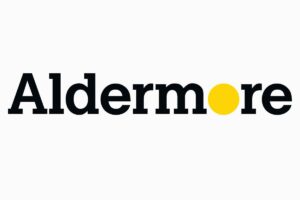
Aldermore offers a range of business savings accounts for UK businesses, including easy access and fixed-rate options. Here’s a summary of what they offer:
Easy Access Business Savings Account:
- Interest Rate (AER): 3.25%
- Minimum Opening Balance: £1,000
- Features: Flexibility to add or withdraw money at any time with a consistently competitive interest rate.
- Eligibility: UK-based businesses, excluding clubs, societies, and charities.
- Fees: No standard account service fees.
6-Month Fixed Rate Business Savings Account:
- Interest Rate (AER): 4.05%
- Minimum Opening Balance: £1,000
- Term: 6 months
- Features: Fixed interest rate, no withdrawals during the term.
- Eligibility: Similar to the Easy Access account.
1-Year Fixed Rate Business Savings Account:
- Interest Rate (AER): 4.35%
- Minimum Opening Balance: £1,000
- Term: 1 year
- Features: Highest interest rate offered by Aldermore, with no withdrawals allowed during the term.
- Eligibility: Similar to the Easy Access account.
All these accounts are protected by the Financial Services Compensation Scheme (FSCS), ensuring protection for deposits up to £85,000. Aldermore’s business savings accounts are specifically designed for limited companies, limited partnerships, limited liability partnerships, partnerships, or sole traders, and are not available to clubs, societies, or charities. Moreover, Aldermore does not charge for standard account services but may levy charges for non-standard services.
Aldermore’s online banking platform allows account management, including checking balances and interest rates, providing maturity instructions, updating contact and bank account information, and making withdrawals. However, they do not currently offer a mobile app for these services.
Aldermore has received positive reviews for its competitive interest rates and easy account management, although some customers have reported difficulties in accessing their funds and issues with customer service. The bank has an overall TrustScore of 4.5 out of 5 on Trustpilot, based on over 4,000 reviews.
Read our Aldermore business banking review or visit the website.
Allica Bank
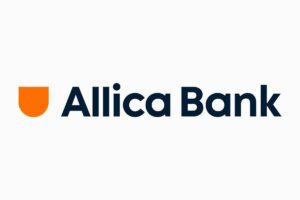
Allica Bank offers a range of business savings accounts for UK businesses, with competitive interest rates and online management. Here’s a breakdown of their offerings:
Fixed-Term Business Savings Accounts:
- 6-Month Fixed Term: Offers 4.80% AER with a gross annual interest of 4.74%, payable at maturity.
- 12-Month Fixed Term: Features a higher AER of 5.10%, with annual gross interest of 5.10%, also payable at maturity.
- 24-Month Fixed Term: Provides an AER of 5.05%, with an annual interest payout of 5.05%.
- Investment Range: All three accounts allow investments ranging from £20,000 to £2,000,000.
- Account Management: These accounts are managed entirely online.
- Fees: No fees are associated with these accounts.
- Eligibility: To be eligible, businesses must be registered with Companies House, based in the UK, and have a UK business bank account.
Business Rewards Account:
- Interest Rate: Offers an instant access savings pot with an AER of 3.65%.
- Cashback: Up to 1.5% cashback on card purchases.
- Fees: No application or monthly fees, and free transactions for bank transfers, card purchases, and ATM withdrawals.
- Eligibility: Requires a minimum annual turnover of £700k or at least seven employees.
- Management: The account can be managed through a mobile app or desktop.
- Customer Service: Allica Bank offers a UK-based support team and dedicated relationship managers for support.
Allica Bank has received positive customer reviews on Trustpilot, with a 4.5 out of 5-star rating, commending the bank for its competitive interest rates, straightforward account opening process, and excellent customer service.
The Allica Bank app has also been well-received, with high ratings on both the Apple Store and Google Play Store, though some users have noted the absence of a withdrawal option in the app.
Read our Allica Bank business banking review or visit the website.
Allied Irish Bank (AIB)
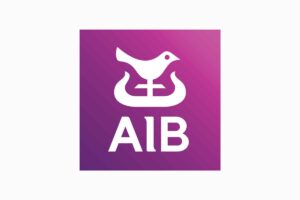
Allied Irish Bank (AIB) offers a selection of business savings accounts to cater to different needs. Their offerings include both Demand Deposit Accounts and Fixed Term Deposit Accounts. The interest rates for these accounts vary, with the highest rate reaching up to 4.00% AER.
The Fixed Term Deposit Account is designed for businesses looking to deposit funds for a fixed period, offering a higher interest rate for this commitment. However, this type of account restricts access to funds until the term ends. On the other hand, the Demand Deposit Account provides more flexibility, allowing businesses to access their funds as needed. This account has a daily variable interest rate applied either monthly or quarterly.
Allied Irish Bank’s business savings accounts can be tailored to suit various business requirements, and they offer these services in major currencies, making them a viable option for businesses with international dealings. Their account opening process is efficient, and businesses can manage their accounts through electronic banking.
AIB also caters to non-existing customers, meaning businesses not currently banking with them can still open a savings account. This inclusivity is beneficial for businesses exploring different banking options.
Read our Allied Irish Bank business banking review or visit the website.
Atom Bank

Atom Bank offers a range of savings accounts for businesses, focusing on simplicity and convenience through their app-based banking platform. Here’s an overview of their savings account options:
Instant Saver:
- This account provides 24/7 access to funds with an easy setup process.
- It offers an interest rate of 4.11% AER (variable), allowing for unlimited withdrawals.
- The account can be opened with £0, ensuring easy and immediate access to cash.
Fixed Saver:
- Atom Bank’s Fixed Saver accounts are designed for those who can commit their money for a fixed term.
- They offer competitive rates for terms ranging from six months to five years, with interest rates up to 5.25% AER (fixed).
- During the fixed term, withdrawals are not permitted.
- These accounts are suitable for businesses that can lock away funds for a set period and wish to secure a fixed interest rate.
All savings accounts with Atom Bank are protected under the Financial Services Compensation Scheme (FSCS), ensuring security for your funds up to a total of £85,000. The accounts can be managed exclusively through Atom Bank’s mobile app, providing a convenient and modern approach to business savings.
Read our Atom business banking review or visit the website.
Bank of Scotland
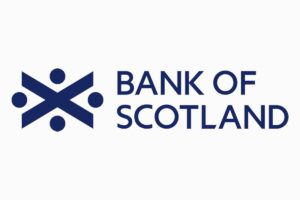
Bank of Scotland offers a variety of business savings accounts, catering to different business needs. They include instant access accounts, notice accounts, and fixed term accounts. These accounts are designed to accommodate businesses looking for flexibility in managing their surplus funds or those seeking fixed returns over a specified term.
Instant Access Accounts:
These accounts typically allow businesses to deposit and withdraw funds without restrictions, providing flexibility and ease of access to funds.
Notice Accounts:
These accounts may offer higher interest rates compared to instant access accounts, in return for agreeing to notify the bank before making withdrawals. The notice period can vary.
Fixed Term Accounts:
Fixed term accounts usually offer higher interest rates for locking away funds for a set period, which can range from a few months to a couple of years. These accounts are suitable for businesses that can commit funds for a fixed duration without the need for early withdrawal.
The interest rates for these accounts vary and are subject to change.
Read our Bank of Scotland business banking review or visit the website.
Cambridge Building Society

Cambridge Building Society offers three types of business savings accounts to a range of businesses including sole traders, partnerships, limited companies, registered charities, housing associations, clubs, and associations. However, they do not offer current accounts for businesses.
Here are the types of savings accounts available:
Business Saver:
- Interest Rate: 0.10% AER
- Deposit Range: £1,000 to £2,500,000
- Withdrawal Terms: Up to twice a month
- Account Management: The account can be opened in-branch or through the post but not online.
Council Saver:
- Specifically for parish and town councils
- Interest Rate: 0.10% AER
- Deposit Range: £1,000 to £2,500,000
- Withdrawal Terms: Up to twice a month
- Account Management: Managed in-branch or through the post
It’s important to note that Cambridge Building Society’s savings accounts do not support online banking, making them less suitable for businesses outside Cambridge. The interest rates offered are relatively low compared to other options in the market.
Regarding customer service, the society has received mixed reviews with a focus on its community-oriented approach to banking. They have a few customer reviews on Trustpilot and Smart Money People, with a general focus on their customer service.
Read our Cambridge Building Society business banking review or visit the website.
Cater Allen Private Bank
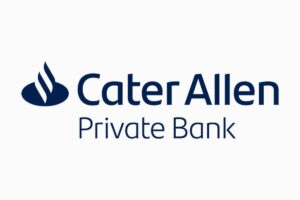
Cater Allen Private Bank offers two types of business savings accounts:
Business Notice 35 Account:
- This is a 35-day notice account.
- Interest Rate: 2.85% AER on all balances.
- Features: Requires notice for withdrawal but offers higher interest rates for savings.
Fixed Term Deposit Account:
- This account allows you to lock away your funds for either one or two years.
- Minimum Deposit: £85,000.
- Interest Rates: 3.70% to 4.00% AER, depending on the term.
- Features: Offers a guaranteed rate of interest with no access to funds during the term.
In terms of their business banking services, Cater Allen Private Bank provides the following:
Reserve Account:
A free bank account available in pounds, euros, or US dollars. Interest is paid on balances above £500,000 at 0.05% AER. The account can be opened within three to five working days without an appointment.
However, it’s important to note that Cater Allen Private Bank’s overall customer satisfaction is relatively low, with a poor score on Trustpilot. They offer no mobile banking app, and their services are primarily geared towards clients with higher balances.
Read our Cater Allen business banking review or visit the website.
Charity Bank
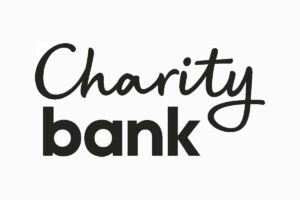
Charity Bank offers a range of banking services tailored to meet the specific needs of charities and social enterprises. Although detailed information about their specific savings account offerings was not directly accessible, generally, specialist banks like Charity Bank provide a variety of accounts, including current accounts, savings accounts, notice accounts, and term deposits, with competitive rates and no hidden fees.
Charity Bank, as a specialist institution, focuses on supporting charities, social enterprises, and community organisations. Their services are designed to meet the unique financial needs of these entities, often including features like competitive interest rates and no hidden fees.
For UK charities considering opening a bank account, it’s important to choose a financial institution that aligns with the charity’s mission and offers the necessary features and services. Factors such as fees, interest rates, access to funds, customer support, and the bank’s commitment to ethical and social responsibility should be considered.
Read our Charity Bank review or visit the website.
Clydesdale Bank
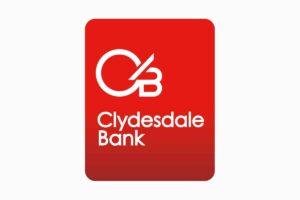
Clydesdale Bank, now operating under the Virgin Money brand, offers a variety of business banking services. However, for business savings accounts, they have transitioned their services to be provided by Virgin Money. This transition is part of their consolidation with Virgin Money and Yorkshire Bank, aimed at enhancing their banking experience.
While specific details about the types of business savings accounts offered under the Virgin Money brand were not directly accessible, generally, such accounts can range from instant access, notice, and fixed term accounts, each with its own set of features and interest rates.
It’s important to note that Clydesdale Bank has received mixed customer reviews, particularly in regard to their online and mobile banking services. Trustpilot ratings indicate some dissatisfaction among customers, especially in relation to the transition to Virgin Money and the usability of online banking platforms.
Read our Clydesdale business banking review or visit the Clydesdale website.
The Co-operative Bank
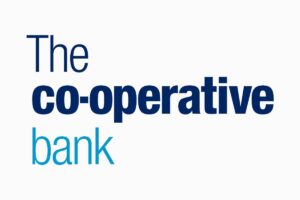
The Co-operative Bank offers a range of business savings accounts with various features to cater to different business needs:
95 Day Notice Account:
- Interest Rate: 2.50% gross/AER variable, calculated daily and paid twice a year.
- Access: Account access via phone.
- Account Balance: No minimum or maximum account balance restrictions.
- Features: Suitable for customers seeking the highest interest rate and can give 95 days’ notice before withdrawing money.
35 Day Notice Account:
- Interest Rate: 2.12% gross/AER variable, calculated daily and paid twice a year.
- Access: Account access via phone.
- Account Balance: No minimum or maximum account balance restrictions.
- Features: Ideal for customers wanting a shorter notice period, providing 35 days’ notice before withdrawals.
Instant Access Account:
- Interest Rate: 1.62% gross/AER variable, calculated daily and paid twice a year.
- Access: Account accessible online, via phone, or in branch.
- Account Balance: No minimum or maximum account balance restrictions.
- Features: A straightforward savings account with instant access to funds.
Additionally, Co-operative Bank offers fixed-term deposit accounts with higher interest rates for longer commitments. For instance, their 1-Year and 3-Year Fixed Term Deposit accounts offer interest rates of 4.75% and 4.56% AER/gross respectively, but do not allow withdrawals until maturity.
The Co-operative Bank is known for its commitment to ethical banking and community support, aligning its operations with co-operative values since 1872. They offer a safe place for startups and SME businesses to deposit surplus cash while earning interest.
Read our Co-Op business banking review or visit the website.
Cumberland Building Society

Cumberland Building Society offers business savings accounts with a maximum investment limit of £5 million per account, with the ability to manage savings via phone, post, or online.
These accounts don’t allow withdrawals before maturity.
They have been recognised with an award for Best Business Fixed Savings Account Provider in 2023.
Deposits in these accounts are protected by the FSCS protection scheme.
Read our Cumberland Building Society business banking review or visit the website.
Cynergy Bank
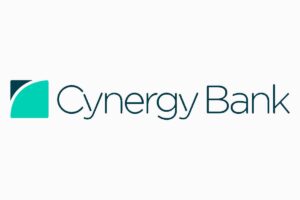
Cynergy Bank offers the Business Saver account for UK businesses, providing a competitive interest rate and easy access to funds. Here are the key features of the Cynergy Bank Business Saver account:
- Interest Rate: The account offers an interest rate of 3.65% AER, variable, paid monthly at a gross rate of 3.59% per annum.
- Access to Funds: This account provides easy access to your funds, allowing withdrawals whenever needed.
- Account Opening: The account can be opened quickly, in about 10 minutes, and is suitable for a wide range of business types, including sole traders, partnerships, limited liability partnerships, and limited companies.
- Deposit Limits: The minimum deposit is £1, and the maximum balance allowed is £10,000,000.
- Account Management: The account is managed exclusively online.
- Fees: There are no account fees for the Business Saver account. However, certain services like CHAPS and SWIFT payments may incur charges.
Eligibility for the account includes UK residency for businesses and key individuals involved, and the account is not available for personal savers, clubs, societies, charities, or trusts.
Cynergy Bank has received positive reviews for its straightforward online processes and customer service, but there are also some concerns regarding difficulties with digital systems and customer support.
Read our Cynergy business banking review or visit the website.
Danske Bank UK
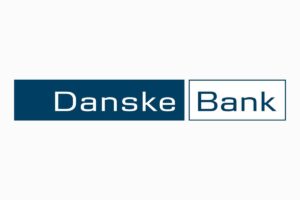
Danske Bank offers two main types of business savings accounts:
Business Investment Account:
- This is an instant access savings account, meaning you can withdraw funds whenever necessary without a notice period or penalty.
- The account can be opened with as little as £1, and there is no maximum balance limit.
- Interest is calculated daily and applied quarterly at a rate of 0.85% AER.
- The account does not come with a debit card and is not suitable for customers requiring day-to-day transactional activities.
Fixed Term Deposit Account:
- This account allows for deposits for terms ranging from one week to five years, suitable for businesses looking to lock away funds for a fixed period.
- A minimum deposit of £5,000 is required, and the account must be linked with a Danske current account.
- Interest is paid upon the maturity of the deposit, with rates varying from 2.75% to 2.76% AER depending on the term of the savings.
It’s important to note that Danske Bank currently only accepts new account applications from residents of Northern Ireland.
The bank is known for its advanced online business banking platform and offers a variety of lending streams, though it has been noted for having a somewhat clunky app and slower customer service responses.
Read our Danske business banking review or visit the website.
Hampshire Trust Bank
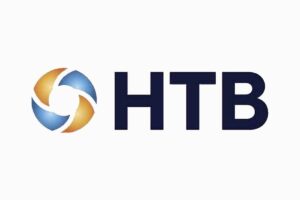
Hampshire Trust Bank provides various business savings account options for small businesses, charities, and community organisations. Their offerings include both fixed and notice accounts with competitive interest rates:
Variable-Rate Notice Accounts:
- These accounts require 95 or 120 days’ notice for withdrawals.
- Interest Rates: 0.75% or 0.85% AER, paid annually.
- Minimum Investment: £5,000.
- Maximum Savings: Up to £750,000.
Fixed-Term Savings Accounts:
- These are for fixed periods of 1 or 2 years.
- Interest Rates: 1.11% or 1.20% AER, paid annually.
- Minimum Investment: £5,000.
- Maximum Savings: Up to £750,000.
Hampshire Trust Bank also offers some specific fixed-rate bonds and notice accounts:
- A 9 Month Fixed Rate Bond with 5.54% AER, requiring a minimum investment of £1 and a maximum of £250,000. Interest is paid on maturity, and withdrawals are not permitted during the term.
- A 6 Month Fixed Rate Bond with 5.48% AER, having similar investment limits and conditions.
- A 95 Day Notice Account with a 5.51% AER variable rate, requiring 95 days’ notice for withdrawals, and accepting investments from £1 to £250,000.
Hampshire Trust Bank is known for its high customer satisfaction, with a majority of the reviews on Trustpilot rating the bank as ‘Excellent’ or ‘Great’. The reviews highlight good customer service, ease of setting up the account, effective communication, and competitive rates.
However, it’s important to note that the bank does not offer current accounts and lacks specific information about business finance on its website.
Read our Hampshire Trust Bank business banking review or visit the website.
HSBC
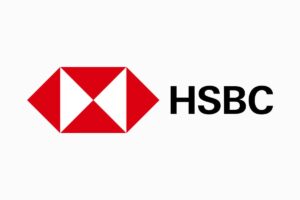
HSBC offers several types of business savings accounts with various features to meet the needs of different businesses:
Business Money Manager:
- This is an instant access savings account, ideal for setting aside separate funds. It’s easy to open and manage, and allows you to withdraw your money whenever needed.
- Interest Rates (Effective from 05.09.2023):
- Instant Access Rate (Up to £100,000): 1.92% Gross / 1.93% AER
- For higher amounts, the rates slightly increase.
- Interest is calculated daily and can be paid monthly or quarterly.
- There are no minimum or maximum deposit limits for this account.
HSBC Kinetic Savings Account:
- This account offers different tiers of interest rates depending on the account balance and how long you have gone without making a withdrawal.
- Interest Rates (Effective from 05.09.2023):
- Up to £100,000: 1.92% Gross / 1.94% AER (Instant Access Rate)
- Higher rates apply for balances over £100,000 and for accounts without withdrawals for 30+ and 60+ days.
- You can withdraw money whenever needed, and the account can be managed via the HSBC Kinetic app.
- There are no minimum or maximum deposit amounts, and the account is eligible for businesses with an annual turnover of up to £6.5 million.
Both accounts allow flexible access to funds and provide the opportunity to earn interest on surplus cash. HSBC’s business savings accounts are designed to be straightforward and adaptable to various business requirements, offering both instant access and the potential for higher interest rates for longer-term savings.
Read our HSBC business banking review or visit the website.
ICICI Bank UK

ICICI Bank UK offers a Business Savings Account for businesses that hold a Business Current Account with them. The account features include:
- Interest Rate: As of 31st August 2023, the account offers an AER (Variable) of 2.85% on balances. This rate is subject to change, so it’s advisable to check with the bank for the latest rates.
- Access: The account provides easy access to funds.
- Account Limit: The maximum savings limit for this account is up to GBP 5 million.
- Application Requirements: To open a Business Savings Account, you need to hold a Business Current Account with ICICI Bank UK. Verification of identity and address is required for the application.
- Accessibility: The account can be accessed online and through branches.
In addition to the Business Savings Account, ICICI Bank UK offers other products such as Fixed Deposits and Forex Solutions for businesses.
However, it’s important to note some aspects of ICICI Bank’s business banking services:
- They have a relatively small number of branches in the UK, which may impact the convenience of in-person services.
- ICICI Bank UK has had some controversies in the past, so it may be beneficial to research and consider these aspects before deciding to bank with them.
Read our ICICI business banking review or visit the website.
Kent Reliance
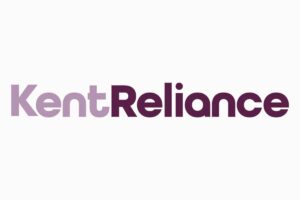
Kent Reliance offers a business savings account designed specifically for private limited companies. The key features of their business savings account include:
- Interest Rates: The account offers an interest rate of 3.00% AER/Gross for balances starting at £1. This rate is variable and calculated annually or monthly, depending on the option chosen.
- Access and Management: The account can be managed online, providing easy access to funds without notice or penalty.
- Opening Deposit: A minimum opening deposit of £1,000 is required.
- Maximum Deposit: The maximum deposit limit is set at £1,000,000.
- Withdrawals: Withdrawals are permitted without notice or penalty and will be made directly to a nominated account.
- Eligibility: The account is available to UK-based Private Limited Companies only, with a maximum of three Directors who are also major Shareholders.
It’s important to note that Kent Reliance doesn’t offer current accounts or business finance and loan services. The savings account is primarily an online product, though they do have a few branches in the South East of England.
Customer reviews on Trustpilot and Smart Money People for Kent Reliance have been mixed, with some praising their clear advice and easy-to-navigate systems, while others have highlighted issues with customer service.
Read our Kent Reliance business banking review or visit the website.
Lloyds Bank
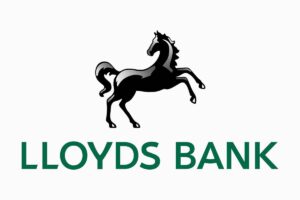
Lloyds Bank offers a variety of business savings accounts with competitive interest rates. However, due to an error on their website, specific details about these accounts, such as the types of accounts available and their corresponding interest rates and terms, were not accessible at the time of this search.
From the information available, Lloyds Bank’s business savings accounts seem to offer interest rates ranging from 0.90% to 3.40%, with the minimum investment amount being £1.
The types of accounts they offer include Instant Access, Notice Accounts (32 or 95 days), and Fixed Term Accounts (ranging from 3 months to 2 years).
Read our Lloyds business banking review or visit the website.
Masthaven

Masthaven Bank announced its intention to withdraw from the UK banking market in February 2022, and as a result, they have been returning depositors’ funds since then, with the majority having been repaid between January and March 2023. Therefore, Masthaven is no longer offering new business savings accounts.
Previously, Masthaven had offered competitive business savings accounts for UK-based Sole Traders and Limited Companies, allowing deposits between £5,000 and £500,000 with fixed terms ranging from 6 months to 2 years. The interest rates on these accounts varied from 0.75% to 0.85% AER, calculated daily and paid annually, but customers were not able to withdraw funds until the saving term ended.
Read our Masthaven business banking review or visit the website.
Metro Bank
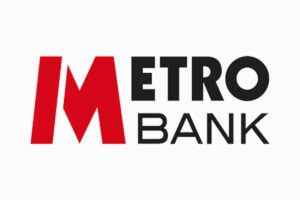
Metro Bank offers a variety of business savings accounts to meet the needs of different businesses. Here’s an overview of their available accounts:
Business Instant Access Deposit Account:
- Offers a variable interest rate.
- Provides instant access to funds.
- Suitable for businesses looking for flexibility in managing their savings.
Business Fixed Term Deposit Account:
- Designed for businesses seeking a better return on their money over a fixed term.
- Offers higher interest rates for longer commitments.
- The interest rate is fixed, ensuring predictability in returns.
Business Notice Account:
- Ideal for businesses that can afford to give notice before withdrawing funds but don’t want to commit to a fixed term.
- Offers various notice periods, including 35, 60, or 95 days.
- Provides a balance between accessibility and earning potential.
Community Instant Access Deposit Account:
- Aimed at clubs, charities, or societies looking to grow their funds or donations.
- Offers instant access to funds with a variable interest rate.
Community Fixed Term Deposit Account:
- Allows community groups and charities to put aside money and grow their funds over a fixed term.
Client Premium Deposit Account:
- Suitable for businesses holding client deposits.
- Offers a secure place to hold these funds.
Flexible Client Term Deposit Account:
Allows businesses to put client deposits aside while retaining some access to the funds if needed.
The interest rates for these accounts vary based on the type of account and the amount deposited. For example, the Business Fixed Term Deposit Account offers interest rates ranging from 3.51% to 4.21% AER fixed, depending on the term length and whether the interest is paid monthly or at maturity.
Metro Bank’s business savings accounts can be managed through their mobile app, providing convenience and ease of use. It’s important to note that these accounts are designed to cater to different business needs, whether it’s immediate access to funds or higher returns for longer-term savings.
Read our Metro business banking review or visit the website.
Monzo

Monzo offers a Business Instant Access Savings Pot for UK businesses, providing an easy and flexible way to earn interest on surplus funds while retaining instant access to them.
Key features of Monzo’s Business Instant Access Savings Pot include:
- Interest Rate: Up to 1.60% AER (variable), paid monthly. This rate applies to spare money deposited, with no minimum deposit requirement.
- Deposit and Withdrawal: There is no minimum deposit required to start earning interest, and businesses can deposit any amount. The maximum balance is capped at £100,000. The account offers easy access, meaning businesses can withdraw their funds instantly whenever needed.
- Accessibility: The account is managed via the Monzo app or online, providing convenient access and management of funds.
- FSCS Protection: For sole traders or small businesses, eligible deposits may be protected by the Financial Services Compensation Scheme (FSCS) up to £85,000 per person.
This account is particularly suitable for businesses looking for a simple and flexible way to manage their excess cash while earning a competitive interest rate.
It allows businesses to schedule regular payments into the savings pot for future needs and provides the flexibility of accessing and withdrawing funds anytime without restrictions.
Monzo’s digital platform offers a seamless banking experience, but it’s important to note that it operates online and mobile only, without physical branches.
Read our Monzo business banking review or visit the website.
Nationwide Building Society
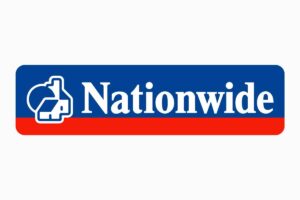
Nationwide Building Society offers a variety of business savings accounts for businesses with an annual turnover of less than £10 million. Their range of accounts includes:
Instant Access Saver:
- Interest Rate: Up to 2.25% AER/gross p.a. (variable).
- Features: This account provides instant access to your funds. Interest is calculated daily, but no interest is earned if the balance falls below £5,000.
35 Day Saver:
- Interest Rate: Up to 3.10% AER/gross p.a. (variable).
- Features: This account requires 35 days’ notice for withdrawals, offering a higher interest rate compared to the Instant Access Saver.
95 Day Saver:
- Interest Rate: Up to 3.80% AER/gross p.a. (variable).
- Features: For customers who can give 95 days’ notice before making withdrawals, this account offers an even higher interest rate.
6 Month Saver:
- Interest Rate: 4.50% AER/gross p.a. (fixed).
- Features: This fixed-term account offers a guaranteed interest rate for a period of six months.
1 Year Saver:
- Interest Rate: 4.90% AER/gross p.a. (fixed).
- Features: This account provides a fixed interest rate for a one-year term.
Nationwide’s business savings accounts are designed to meet the needs of various business sizes and types. They offer the safety of the Financial Services Compensation Scheme (FSCS), providing protection for your deposits up to a certain limit.
Read our Nationwide business banking review or visit the website.
NatWest
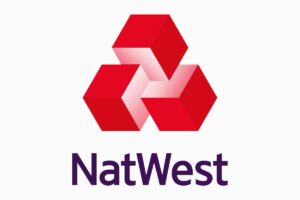
NatWest offers three main types of business savings accounts, each catering to different business needs:
Business Reserve Account:
- This is an instant access account, allowing you to access your savings whenever needed without any withdrawal charges.
- Interest Rates: 0.80% AER for balances up to £9,999,999, and 0.85% AER for balances of £10,000,000 or more.
- Minimum Deposit: There is no minimum deposit required.
- Maximum Balance: No maximum balance specified.
Liquidity Manager Notice Account:
- A notice account requiring either 35 or 95 days’ notice before making withdrawals.
- Interest Rates: 1.10% or 1.50% AER, depending on the notice period.
- Minimum Deposit: No minimum deposit is required.
- Maximum Balance: There is no maximum balance limit.
Treasury Reserve Account:
- A fixed term savings account with terms up to 12 months, offering a fixed interest rate.
- Interest Rates: The rates are agreed upon with NatWest during the application process.
- Minimum Deposit: Between £100,000 and £5 million, depending on the term length.
- Maximum Balance: No maximum balance limit.
NatWest’s business savings accounts are designed to provide flexibility and convenience for managing surplus business funds. They can be managed via NatWest’s mobile app, online banking, or by phone, making them accessible and user-friendly.
In addition to savings accounts, NatWest offers a range of business banking services, including current accounts, loans, and overdraft facilities. They have a significant presence as one of the Big Four high street banks in the UK, serving a large number of businesses across the country.
However, it’s important to note that while NatWest’s mobile banking app has received high ratings, their overall Trustpilot score is quite low, indicating mixed customer satisfaction.
Read our NatWest business banking review or visit the website.
OakNorth
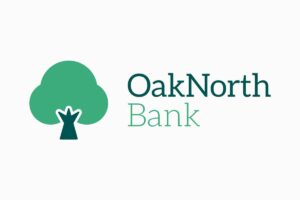
OakNorth Bank offers a variety of business savings accounts to cater to different business needs. Here’s an overview of their main offerings:
Business Fixed Term Savings Accounts:
These are fixed deposit accounts where the amount becomes available only at the end of the selected term. Interest accrues daily and is applied to the account upon maturity.
Business Notice Savings Accounts:
These accounts offer variable interest rates that are dependent on the notice period selected. The interest rates range from 1.60% AER for a 35-day notice period to 1.90% AER for a 120-day notice period. Interest is calculated daily on the closing balance and applied monthly. If you withdraw funds, the interest will be calculated up to the day before the withdrawal.
The accounts can be managed online, and OakNorth Bank provides various user roles (like Admin, Signatory, Read-only) to manage the account effectively. The minimum deposit required to open an account is £10,000, and the maximum deposit across all OakNorth Business Savings Accounts is £1,000,000.
OakNorth Bank, known for its focus on providing finance to businesses across the UK, has funded a wide range of businesses, including several household names. They have offices in various locations across the UK and also operate an India-based front office.
They have received recognition in the banking sector, having won several awards in recent years for their services.
Read our OakNorth business banking review or visit the website.
Redwood Bank

Redwood Bank offers a selection of business savings accounts that cater to various business needs:
35 Day Business Savings Account:
- This account offers a balance of accessibility and interest earning, requiring 35 days’ notice for withdrawals.
- Interest Rate: 3.75% AER.
95 Day Business Savings Account:
- A competitive savings account that requires 95 days’ notice for withdrawals.
- Interest Rate: 4.30% AER.
1 Year Business Savings Bond:
- This account locks in business savings for one year, offering a higher rate of interest.
- Interest Rate: 4.80% AER.
2 Year Business Savings Bond:
- Suitable for businesses looking to secure their savings for two years.
- Interest Rate: 4.85% AER.
Redwood Bank’s business savings accounts are designed to offer a range of options from more accessible accounts with shorter notice periods to fixed-term accounts that provide higher interest rates for longer commitments. These accounts are suitable for businesses looking for flexible and competitive savings solutions.
The minimum investment amount for Redwood Bank’s savings accounts is £10,000, making them a potentially more suitable option for businesses with a higher amount of surplus cash to deposit.
Read our Redwood business banking review or visit the website.
Royal Bank of Scotland (RBS)
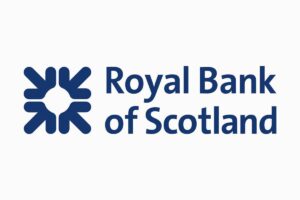
The Royal Bank of Scotland (RBS) offers a variety of business savings accounts, each catering to different business needs. Here’s an overview of their main offerings:
Business Reserve Savings Account:
- Interest Rates: The account offers a tiered interest rate structure:
- 1.46% AER/Gross p.a. (variable) on balances up to £999,999.
- 1.71% AER/Gross p.a. (variable) on balances from £1 million to £9,999,999.
- 1.92% AER/Gross p.a. (variable) on balances over £10 million.
- Access: Instant access to funds.
- Additional Features: No minimum or maximum balance restrictions, interest is calculated daily and paid monthly, and the account can be managed via telephone or digital banking.
Liquidity Manager Notice Account:
- Interest Rates: These accounts typically offer higher interest rates in exchange for notice before withdrawal. While the specific rates were not available at the time of research, these accounts are known for being suitable for businesses that do not need immediate access to their funds and are looking for better returns compared to instant access accounts.
- Notice Periods: Options for 35 or 95 days notice before withdrawal.
Client Deposit Manager:
- This account is designed for managing client funds, offering a tiered interest rate system similar to the Business Reserve account.
These accounts are designed to suit a range of business needs, from businesses needing instant access to their funds to those that can plan and give notice before making withdrawals, thereby earning a potentially higher interest rate.
RBS is known for providing comprehensive business banking services, including current accounts, overdrafts, and business loans, in addition to their savings accounts. They offer digital and telephone banking facilities, making account management convenient for businesses.
Read our RBS business banking review or visit the website.
Santander
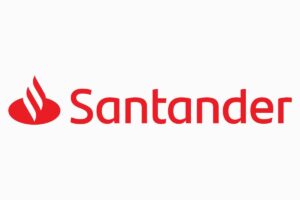
Santander UK offers a variety of business savings accounts, each catering to different needs of SMEs:
Business Everyday Saver:
- This account provides easy and instant access to funds.
- It can be managed online, by phone, or at ATMs.
- The minimum opening deposit is £1.
Business Reward Saver:
- Offers a higher rate of interest when no withdrawals are made.
- Easy access to funds is available via online, phone, or ATM.
- The account requires a minimum opening deposit of £1 but offers a lower interest rate when withdrawals are made.
Fixed Rate Business Bond:
- This account offers a fixed return on savings.
- It does not permit additional deposits, withdrawals, or account closure until the end of the term.
- The minimum opening deposit is £10,000, and you can save up to £5 million.
Treasurer’s Savings Account:
- This account allows earning interest with instant access online, by phone, or via cash machines.
- The minimum opening deposit for this account is £1.
Santander also offers other types of savings accounts, such as Easy Access ISA and Santander Edge Saver, each with its own set of features and interest rates. For instance, the Easy Access Saver offers a 1.70% AER/gross variable interest rate for 12 months, while the Santander Edge Saver offers a 7.00% AER/gross variable interest rate on balances up to £4,000.
Read our Santander business banking review or visit the website.
Shawbrook Bank
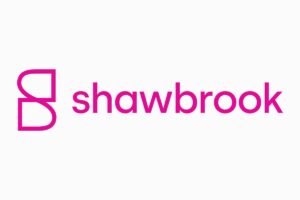
Shawbrook Bank offers a variety of business savings accounts to suit different business needs, with a straightforward approach to savings and consistently competitive business savings rates. Here’s a summary of their offerings:
Easy Access Business Account:
- Designed for businesses looking for easy access to their savings.
- Deposit Range: £1,000 to £85,000.
- Notable Feature: Easy access without fees.
Fixed Rate Business Savings Bond:
- Suitable for businesses that can set aside money for a fixed term.
- Deposit Range: £5,000 to £2,000,000.
- Term: 1 or 2-year fixed term accounts.
- Note: Funds cannot be accessed until the term ends, but offer higher rates in return.
Business Savings Notice Account:
- Offers options of 45-day or 100-day notice accounts.
- Deposit Range: £5,000 to £2,000,000.
- Feature: Higher interest rates in exchange for notice period before withdrawals.
Shawbrook’s business savings accounts are designed to cater to businesses of all types and sizes, whether looking for easy access, competitive interest rates, or the ability to lock money aside for a set period.
The bank has received positive reviews for its services, with a high rating on Trustpilot, indicating customer satisfaction with their offerings and customer service.
Read our Shawbrook business banking review or visit the website.
State Bank of India (UK)
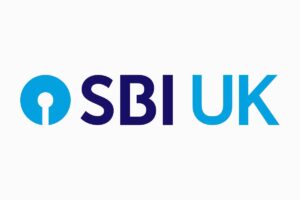
State Bank of India (SBI) UK offers a variety of business savings accounts catering to different business needs. Here are the key details of their savings accounts:
Business Savings Account:
- Interest Rate: 1.95% AER variable on GBP accounts.
- Minimum Balance: £10,000.
- Features: No annual fee with a minimum monthly average balance, up to 25 free transactions per month if the minimum balance is maintained.
- Access: Managed in-branch, by post, or online.
Limited Access Account:
- Interest Rate: 1.90% AER for accounts with limited withdrawals.
- Features: Easy access account limited to four withdrawals per year.
35 Days Notice Account:
- Interest Rate: 2.00% AER.
- Features: Requires 35 days notice for withdrawals, can be opened from £1 and hold up to £5 million.
Fixed Deposit Account:
- Interest Rate: Varies from 0.10% to 4.25%.
- Term: One month to five years.
- Features: Can be opened from £10,000, with a maximum limit of £250,000; only the initial deposit is permitted.
Green Fixed Deposit:
- Interest Rate: Between 4.25% and 4.35% AER.
- Term: Three to five years.
- Features: Initial deposit must be at least £10,000 but not more than £5 million.
State Bank of India UK is known for its straightforward international payment services, especially to and from India. However, it’s important to note that customer reviews have been mixed. They score well on the App Store but have lower ratings on Google Play and Trustpilot.
Read our SBI business banking review or visit the website.
Triodos Bank
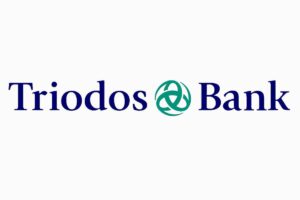
Triodos Bank, known for its commitment to sustainability and ethical banking, currently does not offer new business savings accounts to new customers or charities. They suggest that existing customers in need of a new account should contact their relationship manager. This aligns with Triodos Bank’s approach of providing banking services to those businesses and charities that align with their own ethos and values.
Triodos Bank’s business banking services include a Social Venture Current Account, which operates with no account service charges, only transaction fees. The bank is renowned for using customer deposits to fund projects that positively impact society, culture, or the environment. Their commitment to ethical banking and positive change is a key aspect of their operations. However, it’s important to note that they do not offer debit cards with their business current account.
Triodos Bank has garnered many positive customer reviews for its ethical stance and quality of customer support. However, they have a subjective application process and are only available to existing customers. Their banking services are protected under the Financial Services Compensation Scheme (FSCS), ensuring safety for deposits.
Read our Triodos business banking review or visit the website.
TSB
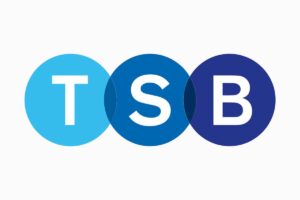
TSB offers a Business Instant Access Savings Account for businesses. This account is designed to provide a flexible saving option with instant access to funds, making it suitable for businesses that require liquidity along with the benefit of earning interest on their savings.
Key features of TSB’s Business Instant Access Savings Account include:
- Interest Rates: The account offers variable interest rates depending on the balance amount. For balances of £5,000 and above, the interest rate is 1.50% AER/Gross. For balances between £1 and £4,999.99, the interest rate is 1.35% AER/Gross. Interest is calculated daily and paid monthly.
- Account Access: The account can be managed online, over the phone, or in-branch, offering various convenient ways to access and manage your funds.
- Withdrawals: The account offers instant access, which means businesses can withdraw funds as needed without any withdrawal penalties. However, transaction and daily limits may apply.
- Opening and Managing the Account: The account can be opened online, over the phone, or if you are a business with a current account held elsewhere. To open an account, you must be 18 or over and a UK resident. The minimum opening balance is £1.
- FSCS Protection: Deposits in the account are covered by the Financial Services Compensation Scheme (FSCS), ensuring protection for your funds up to £85,000.
TSB is known for its retail and commercial banking services in the UK, and it offers a single business current account and this savings solution, available to small businesses, sole traders, charities, and other non-profits. TSB’s banking services are appreciated for their branch network and internet and mobile banking options, providing 24/7 banking facilities.
Read our TSB business banking review or visit the website.
Ulster Bank
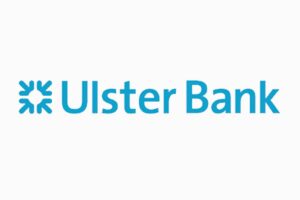
Ulster Bank offers a range of business savings accounts to cater to different business needs:
Instant Access Account:
This account type provides flexibility, allowing businesses to access all or some of their savings when needed. It offers interest rates up to 1.81%.
Fixed Term Accounts:
These accounts range from 1 week to 1 year fixed terms, offering a more structured savings plan with fixed interest rates.
Notice Accounts:
Ulster Bank also provides 35 or 95 Day Notice Accounts. These accounts typically offer higher interest rates in exchange for the ability to withdraw funds only after the specified notice period.
The maximum savings rate offered by Ulster Bank is reported to be 1.81%, with no minimum investment amount required to open an account.
Ulster Bank is part of the NatWest Group and serves Northern Ireland. It provides a range of business banking services, including current accounts, savings accounts, loans, and overdraft facilities. The bank is also known for supporting local businesses and offers various tools and resources for start-ups and established businesses.
Read our Ulster business banking review or visit the website.
United Trust Bank
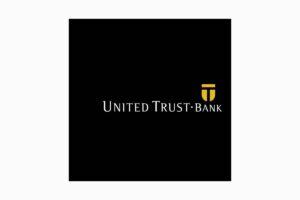
United Trust Bank offers several business savings accounts, each tailored to meet specific needs of businesses. Here’s a summary of what they offer:
Business 15 Month Bond:
- Interest Rate: 4.90% Gross/AER, fixed for the term of the bond.
- Interest Payment: Paid on maturity.
- Account Management: Can be managed by phone, email, or post.
- Withdrawals: Not permitted before the maturity date, but interest can be withdrawn annually on the anniversary.
- Minimum Deposit: £5,000.
- Maximum Deposit: £1 million per account.
Business 18 Month Bond:
- Interest Rate: 4.95% Gross/AER, fixed for the term of the bond.
- Interest Payment: Paid on maturity.
- Account Management: Similar to the 15-month bond.
- Withdrawals: Not allowed before maturity.
- Minimum Deposit: £5,000.
- Maximum Deposit: £1 million per account.
Business 2 Year Bond:
- Interest Rate: 4.95% Gross/AER, fixed for the term of the bond.
- Interest Payment: Paid annually.
- Account Management: Can be managed online, via post, or phone.
- Withdrawals: Not permitted before the maturity date.
- Minimum Deposit: £5,000.
- Maximum Deposit: £1 million per account.
United Trust Bank’s business savings accounts are designed for those who can lock away funds for a fixed period, offering competitive interest rates. It’s important to note that these accounts do not permit withdrawals before the maturity date, ensuring a fixed return on the invested amount.
Read our United Trust Bank business banking review or visit the website.
Virgin Money

Virgin Money offers a range of business savings accounts with different features to cater to diverse business needs. These include instant access, notice accounts, and fixed term deposit accounts. The accounts are designed to provide flexibility and competitive interest rates to businesses.
Instant Access Accounts:
These accounts provide total control over funds, allowing instant access as needed. They are ideal for businesses that require immediate access to their savings without any notice period.
Notice Accounts:
These accounts require advance notice for any withdrawals. In return, they typically offer a guaranteed rate of interest, which is generally higher compared to instant access accounts. The notice period can vary, typically ranging from 30 to 120 days.
Fixed Term Deposit Accounts:
These are suitable for businesses looking to save a lump sum over a set period. These accounts often offer higher interest rates in exchange for locking funds away for a predetermined term, which can range from 3 to 24 months, or even 1 to 2 years.
The interest rates for Virgin Money’s business savings accounts can vary significantly, ranging from 1.00% to 4.50%, depending on the type of account and terms chosen. The minimum investment amount for these accounts starts from as little as £1, making them accessible to a wide range of businesses.
Read our Virgin Money business banking review or visit the website.
Yorkshire Bank
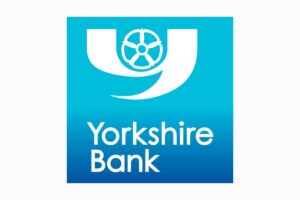
Yorkshire Bank, now merged with Virgin Money, offers a variety of business savings accounts. These accounts cater to diverse business needs, ranging from immediate access to funds to longer-term deposit options with higher interest rates. Here’s an overview of the available account types:
Business Cash Management Account:
- Interest Rate: 0.04% (paid quarterly)
- Features: Offers instant access to funds without a minimum deposit or balance requirement.
Business Access Savings Account:
- Interest Rate: 1.41% on balances between £1 and £2,000,000.
- Features: Allows withdrawals online or at a branch at any time.
Business Notice Accounts:
- Offering various notice periods, such as 30, 65, 95, and 120 days, with interest rates increasing with longer notice periods.
- The 95 Day Business Notice Account, for example, offers an interest rate of 2.78%.
Business Term Deposit Accounts:
- Terms range from 3 to 24 months, with corresponding interest rates.
- For instance, the 12 Month Business Term Deposit Account offers an interest rate of 3.75%.
Fixed Rate Savings Account:
- Options for one and two-year terms are available, offering interest rates of 3.75% and 4.10% respectively.
These accounts are now available under the Virgin Money brand, blending Yorkshire Bank’s traditional banking expertise with Virgin’s innovative approach.
All accounts come with a Virgin Money MasterCard debit card and can be integrated with third-party accounting software. However, the accounts and services are transitioning to be offered entirely under the Virgin Money brand.
Read our Yorkshire Bank business banking review or visit the website.
What is a business savings account?
A business savings account is a type of saving option specifically designed for businesses. It allows companies to easily set aside and save money for future use, such as expansion, investments or emergency funds. Business savings accounts also provide an interest rate on the deposited balance, allowing businesses to generate income from their saved funds.
What are the benefits of a business savings account?
Business savings accounts offer several distinct advantages over other forms of saving. Firstly, they are typically more secure than traditional bank accounts as they are not subject to the same type of market fluctuations or potential losses that could occur with investments.
What is the best business savings account?
The best business savings account will depend on the individual needs and circumstances of your company. It is important to consider factors such as the amount of money you are looking to save, how quickly you need access to it, and any additional features that could be beneficial.
When choosing a business savings account, be sure to compare interest rates and fees and weigh up the pros and cons of each option. It is also worth researching the customer service and reputation of any potential provider, as this can give you a good indication of their reliability and trustworthiness.
Finding the best savings interest rates
This is also made easier with business savings accounts, as they typically offer higher APYs (annual percentage yields) than conventional business bank accounts. This means businesses can potentially generate more income from their saved funds. Additionally, many business savings accounts offer additional features such as online management and payment services, making the process of saving even simpler for businesses.
Consider instant access accounts
For businesses that require quick access to their funds, instant access accounts may be the best choice. These accounts give companies immediate access to their money and usually offer higher interest rates than traditional bank accounts.
It is important to remember, however, that some instant access business savings accounts may have lower maximum deposit limits or incur additional charges.
When would a business need a savings account?
Businesses may need a savings account to:
- Set aside money for short or long term goals
- Generate interest income from the balance
- Keep funds safe in case of emergency expenses
- Save taxes by avoiding early withdrawals on investments
What are the different types of business savings accounts?
There are several different types of business savings accounts, including:
- Regular Savings Accounts – these are basic accounts with lower interest rates
- High-Yield Savings Accounts – higher interest rates than regular savings accounts
- Money Market Accounts – a combination of features from checking and savings accounts
- Certificate of Deposit (CD) Accounts – offer higher interest rates for a fixed term
- Business Investment Accounts – designed for larger investments over the long term
Each type of business savings account has its own set of rules and features, so it’s important to research which one is best suited to your particular needs.
What fees are associated with business savings accounts?
Most business savings accounts have fees associated with them, such as an annual fee, minimum balance requirements and overdraft fees. It’s important to understand the fees associated with any account you open, as these could impact your savings and return on investment.
How to open a business savings account?
To open a business savings account, follow these steps:
How to open a business savings account
- Research the best options available
Compare interest rates, fees and features to find the right account for you
- Choose an institution
Decide on a bank or credit union that meets your needs
- Gather all necessary documents
You’ll need to provide necessary legal documents such as your company’s Articles of Incorporation
- Submit an application
Most institutions will require you to fill out an application form, either online or in person
- Set up transfers and deposit funds
Once the account is open, set up automatic transfers from your business checking account for regular deposits
- Monitor the account
Review statements regularly to ensure the funds are being deposited correctly and earning interest as expected
- Consider other investments
If you have excess funds, consider investing in stocks, bonds or mutual funds to earn additional income
FAQ
A business savings account is an account specially designed for businesses to save money. It allows businesses to earn interest on their deposits and manage their finances more efficiently by providing them access to their funds when needed.
Different banks offer different types of business savings accounts such as fixed rate, easy access and notice accounts. Each type offers different benefits based on the length of time you’ll need to withdraw your money or the rate of interest offered.
A business savings account offers a range of benefits including access to your funds when needed, the ability to earn interest on deposits and protection from market volatility. As well as this, it can provide businesses with a more secure source of income and help them manage their finances more efficiently.
To open a UK business savings account, you’ll need to provide documents such as proof of identity, a copy of your company’s registered address and any relevant paperwork. The specific documents required may vary depending on the bank you’re using.
When comparing different business savings accounts, it’s important to consider factors such as the rate of interest offered, the minimum balance required, any additional fees and the accessibility of your funds. Comparing different options can help you find an account that best suits your needs.
All UK regulated banks have a Financial Services Compensation Scheme (FSCS) which provides protection for up to £85,000 per person per institution. This means you can be sure your money is safe should anything happen to the bank. It’s important to check if your chosen bank is FSCS protected before opening an account.
Interest earned on a UK business savings account may be subject to taxation depending on the type of account and the amount of interest earned. It’s important to seek advice from a qualified financial adviser to ensure you understand any tax implications before opening an account.
The best UK business savings accounts will depend on your individual needs and financial goals. It’s important to compare different options before making a decision to ensure you choose the right account for your business. It’s also a good idea to research any fees or charges associated with each account so you know what you’ll be paying.
To open a UK business savings account, you’ll need to contact the bank of your choice and provide them with all the necessary documents. It’s important to compare different options before making a decision and make sure you understand any fees or charges associated with each account. Once your account has been opened, you can start saving money and earning interest on your deposits.

